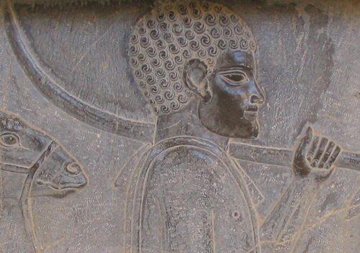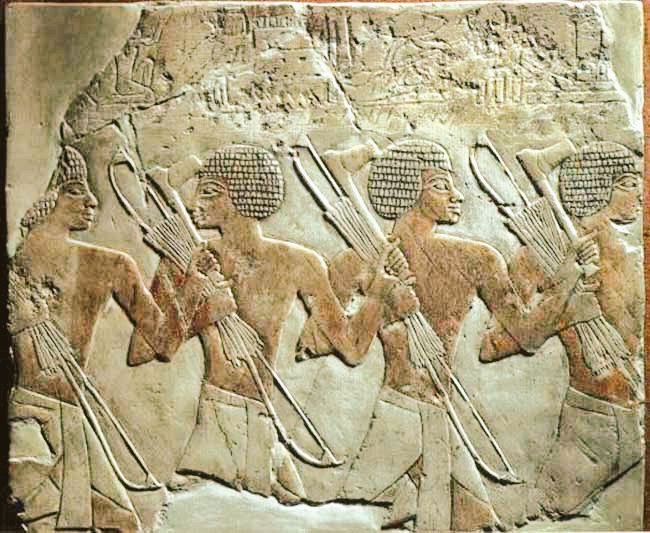
#BlackCatholicHistoryMonth is here. It's every November.
The Early Bible Belt of Christianity: Africa
"Catholic Christianity among African-descended people has its roots in the earliest converts to Christianity, including Mark the Evangelist, the unnamed Ethiopian eunuch ...
The Early Bible Belt of Christianity: Africa
"Catholic Christianity among African-descended people has its roots in the earliest converts to Christianity, including Mark the Evangelist, the unnamed Ethiopian eunuch ...
... Simon of Cyrene, and Simeon Niger. Several of the early Church Fathers were also native to Africa, including Clement of Alexandria, Origen, Tertullian, Athanasius, Cyril of Alexandria, ...
Cyprian, and Augustine.
Saints Perpetua and Felicity and Saint Maurice (as well as his military regiment), early martyrs, were also African."
cbeinternational.org/resource/artic…
Saints Perpetua and Felicity and Saint Maurice (as well as his military regiment), early martyrs, were also African."
cbeinternational.org/resource/artic…

"There have also been three African popes: Victor I, Melchaides (also a martyr), and Gelasius I.The vast majority of these Patristic-era figures resided in North Africa, where various Christian communities thrived until the Muslim conquests of the region." 

"The vast majority of these Patristic-era figures resided in North Africa, where various Christian communities thrived until the Muslim conquests of the region."
theconversation.com/africas-cathol…
theconversation.com/africas-cathol…
"Africa has the world’s third largest Catholic population, after the Americas and Europe. Nearly 1 out of every 5 Africans – 19.2% – is Catholic. The Pew Research Center expects the number of African Christians south of the Sahara, including Catholics, to double by 2050."
The later arrival of Catholic missionaries on the western, central, southern and eastern coasts of Africa spread Christianity across the continent.
In the 15th and 16th centuries, the Portuguese came to Africa and began winning converts in the Central African kingdom of Kongo.
In the 15th and 16th centuries, the Portuguese came to Africa and began winning converts in the Central African kingdom of Kongo.
"African King Nzenga Maremba, tried to stop the slave trade in the #Congo, only after he originally, participated in the trade, in exchange for military items and support from #Portugal."
metmuseum.org/toah/hd/acko/h…
metmuseum.org/toah/hd/acko/h…
"The Portuguese departed with slaves and ivory while leaving behind priests and craftsmen."
cambridge.org/core/books/med…
cambridge.org/core/books/med…
The History of Early Portuguese Settlers in Africa
#Portugal was a small, poor feudal society during the 15th century with underdeveloped industry and unproductive agricultural lands. This explains the exploration of the Portuguese in Africa.
#Portugal was a small, poor feudal society during the 15th century with underdeveloped industry and unproductive agricultural lands. This explains the exploration of the Portuguese in Africa.
Before The Congo: Black Christianity in Africa
"There were multiple early Christian kingdoms in Africa, the most of notable of which emergedin Ethiopia (then Aksum). Around this same era, however, there were also three Nubian Christian kingdoms, ...
"There were multiple early Christian kingdoms in Africa, the most of notable of which emergedin Ethiopia (then Aksum). Around this same era, however, there were also three Nubian Christian kingdoms, ...
... all of which were conquered and left little trace of their former glory; scholars have since recovered some of their history.
Due to the Chalcedonian Schism in the 5th century, however, most of this Eastern (African) Christianity became divorced from Catholicism very early on.
An Arab criminal is on the run, and he has nowhere to go. His own own Arab brothers are trying to kill him.
A Black Ethiopian Christian Kingdom shows pity for this strange Arab foreigner.
His name: The Prophet Muhammed
A Black Ethiopian Christian Kingdom shows pity for this strange Arab foreigner.
His name: The Prophet Muhammed
“When they tortured us and hemmed us in, and came between us and our religion, we left for your kingdom, choosing you because we need your protection. We hope that we would be treated fairly while we are with you, O King!”
islamreligion.com/articles/4996/…
islamreligion.com/articles/4996/…
Prophet Muhammad’s Letter
"The King of Ethiopia, sometimes known as the Negus and possibly one of the last rulers of the Axum Empire, was known as a just and truthful man. He was a Christian with deep religious convictions."
aboutislam.net/reading-islam/…
"The King of Ethiopia, sometimes known as the Negus and possibly one of the last rulers of the Axum Empire, was known as a just and truthful man. He was a Christian with deep religious convictions."
aboutislam.net/reading-islam/…
Hidden Africans Of The Bible And Early Church
cbeinternational.org/resource/artic…
cbeinternational.org/resource/artic…
The black Queen in The New Testament
“Toward the end of Acts, Philip converts an #Ethiopian eunuch to Christianity. He's described as “a court official of “Candace” queen of the Ethiopians” and as being “in charge of all her treasure”.
“Toward the end of Acts, Philip converts an #Ethiopian eunuch to Christianity. He's described as “a court official of “Candace” queen of the Ethiopians” and as being “in charge of all her treasure”.
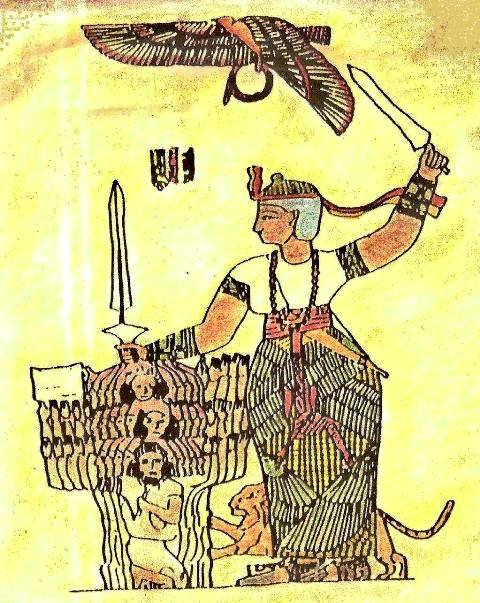
“Interestingly, the eunuch is also said to have traveled to Jerusalem in order to worship there. While there are plenty of questions raised by the eunuch’s presence in the text, I felt more intrigued by those concerning the queen he served.”




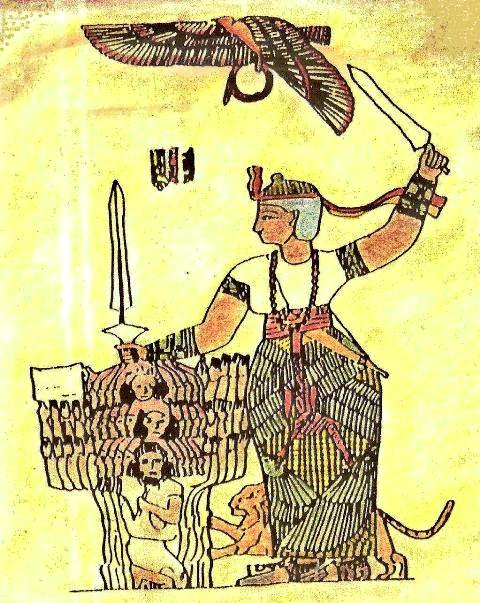
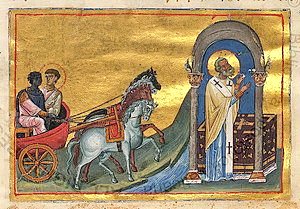
The Kingdom of Kush
"The word “Candace” itself is not a personal name in this context. Rather, it is a title used by the female monarchs “of the ancient Kingdom of Kush in the Nile Valley.”
"The word “Candace” itself is not a personal name in this context. Rather, it is a title used by the female monarchs “of the ancient Kingdom of Kush in the Nile Valley.”
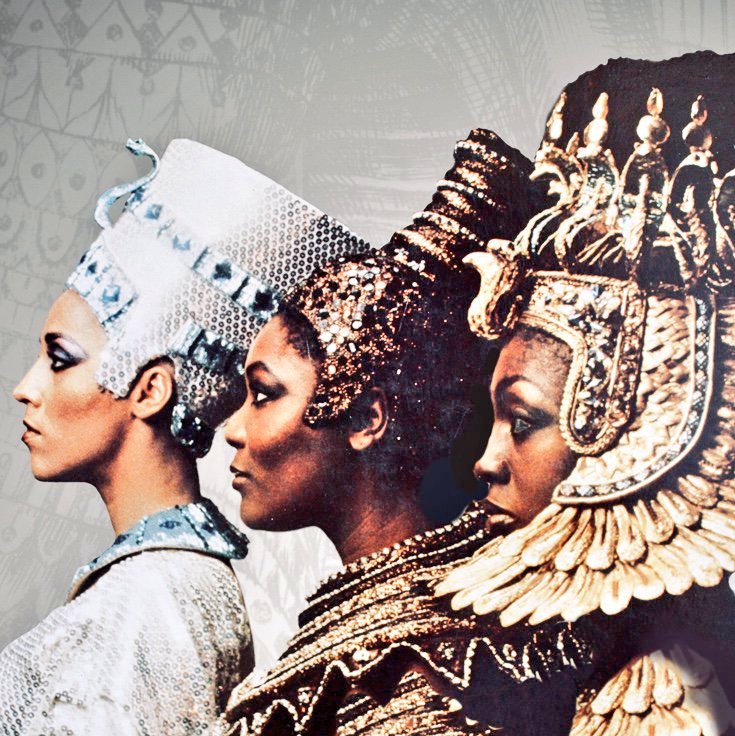
The Black Queens (“Kandakas”) of Kush
Kandake was the title for queens and queen mothers (and often means first royal wife) of the ancient African Kingdom of Kush, which was an ancient Nubian state in what is now Sudan.
#BlackCatholicHistoryMonth
#BHM
africafactszone.com/queens-of-nubi…
Kandake was the title for queens and queen mothers (and often means first royal wife) of the ancient African Kingdom of Kush, which was an ancient Nubian state in what is now Sudan.
#BlackCatholicHistoryMonth
#BHM
africafactszone.com/queens-of-nubi…
"As no one yet has been able to decipher the Meroitic script, very little can be said for certain on how #Meroe grew to become the wonderous city written about by Herodotus in circa 430 BCE, but it is known that the city was so famous for its wealth ... 

... that the Persian King #Cambyses mounted an expedition to capture it." 

"The Persian King Cambyses II quickly and brutally conquered Egypt. But, he failed in his attempt to conquer The Kingdom of Kush."
Herodotus, the Greek historian and geographer, reports that #Cambyses wanted to conquer #kushboo. He sent "spies" to the pharaoh of Kush disguised
Herodotus, the Greek historian and geographer, reports that #Cambyses wanted to conquer #kushboo. He sent "spies" to the pharaoh of Kush disguised

... disguised as messengers bearing gifts. However, the Kushite pharaoh, as Herodotus explains, realized that the Persian messengers were spies. The king mocked Cambyses' gifts in front of the messengers and sent them back with a bow.
Who was the Kushite Pharaoh? His name was Amaninatakelebte.
"The Goddess #ISIS was a powerful protector of the dead in ancient Nubia & Egypt. This gold pectoral was sewn into the mummy wrappings of Amaninatakelebte."
Boston Museum of Fine Arts

"The Goddess #ISIS was a powerful protector of the dead in ancient Nubia & Egypt. This gold pectoral was sewn into the mummy wrappings of Amaninatakelebte."
Boston Museum of Fine Arts

Continuing ...
"The king mocked Cambyses' gifts in front of the messengers and sent them back with a bow. The messengers were instructed to deliver the following message to Cambyses: "when the Persians draw their bows (of equal size as mine) as easily as I do this, then ...
"The king mocked Cambyses' gifts in front of the messengers and sent them back with a bow. The messengers were instructed to deliver the following message to Cambyses: "when the Persians draw their bows (of equal size as mine) as easily as I do this, then ...

Note: The Greeks called every black person "Ethiopian" - even if they weren't from Ethiopia.
"The king mocked Cambyses' gifts in front of the messengers and sent them back with a bow. The messengers were instructed to deliver the following message to Cambyses: "when the Persians draw their bows (of equal size as mine) as easily as I do this, then 

... then he [Cambyses] should march against the long lived Ethiopians [Kushites]"(Herodotus iii. 21).
Cambyses was infuriated and, in response, led a large army to Kush. However, when he "had passed over the fifth part of the way"(Herodotus iii. 25) in the barren deserts of Nubia, Cambyses' army ran out of supplies. 



"Herodotus writes that the Persian army got so hungry that the soldiers resorted to cannibalism. Cambyses eventually gave up the expedition and turned back."
"Later in the first century AD, the Greek geographer Strabo, writes that when Cambyses was traveling from the city of Premnis (Lower Nubia) to conquer Kush, he was "overwhelmed by the setting in of a whirlwind"(Strabo xvii. 54)4 and was consequently forced to head back."
According to Herodotus, the Kushites did not pay tribute to Persia. Instead they sent precious gifts to the Persian king, including gold, ebony and elephant tusks. We also know from Herodotus, as well as from other Greek reporters, that part of the Persian army of King Xerxes ...
Who you gon' crush boo?
African Christian Mothers and Fathers | Mark Ellingsen
• • •
Missing some Tweet in this thread? You can try to
force a refresh


